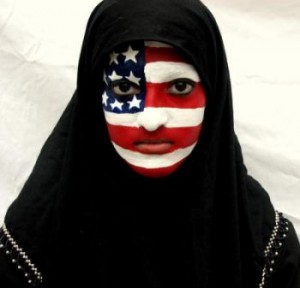American Muslims Identify with US, Islam Equally
August 03, 2011
Suzanne Presto | Washington
A research group has conducted hundreds of thousands of interviews since 2008 with Americans of different faiths, in an attempt to explore the political, social and spiritual engagement of Muslim Americans, as well as gauge attitudes toward them. The study was released Tuesday, and it contains some interesting findings.
Mohamed Younis, senior analyst at the Abu Dhabi Gallup Center, summed up the findings of the new report titled “Muslim Americans: Faith, Freedom and the Future.” “Muslim Americans are just that — they’re Americans. They care a lot about their faith, but they also care a lot about their country,” he said.
Younis said that a decade after the September 11 terrorist attacks on the United States, the study found that a majority of Americans of every faith believe that Muslim Americans are loyal to the United States. He told reporters at a news conference in Washington that this perception came through in Muslim Americans’ responses to questions about identity.
“What we find are that Muslim Americans identify equally with the United States as they do with their religion,” he said.
About 7 out of 10 Muslim Americans said they “very strongly” or “extremely strongly” identified with the United States, and a similar number expressed the same about Islam.
Researchers found that majorities of each major religious group surveyed said they do not believe that Muslim Americans sympathize with al-Qaida terrorists, but many also said Muslims need to speak out more against terrorism.
As for quality of life, Muslim Americans were the most optimistic about the future of all of the groups surveyed.
Overall, Younis said, Muslim Americans were about on par with Catholic, Protestant, Mormon and Jewish respondents when asked to define themselves as struggling, suffering or thriving.
“Muslim Americans were actually statistically similar to most other major religious groups in the United States in the percent of respondents who fell into that ‘thriving’ category,” he said.
Sixty percent of Muslim Americans described themselves as thriving, and only three percent said they were suffering. In both regards, their responses were nearly identical to Jewish Americans.
Researcher Mohamed Younis said Muslim Americans often are closest to Jewish Americans in their social and political views.
“Now, Jewish Americans are more likely than Catholics, Protestants and Mormons to see Muslims as loyal to the United States. They are also in agreement with Muslim Americans — and more likely than Catholics, Protestants and Mormons — to believe that Muslims in the U.S. have no sympathy for the al-Qaida terrorist organization. They’re actually more likely than Muslim Americans to say that the Muslims in the U.S. experience a lot of prejudice. And then Jewish and Muslim Americans are two of the most likely religious groups to also say that the Iraq War was a mistake,” Younis said.
Panelist Imam Mohamed Magid said he was surprised by the findings.
“We work with the Jewish community very closely in many ways, but, for example, the percentage of Jewish Americans who have the same view of the Iraq War and other things like that, I was whispering to David, actually, I said, ‘that’s very surprising,'” he said.
The imam was referring to fellow panelist, Rabbi David Saperstein, who said he believes there are many reasons for the similar perceptions.
“Jews view themselves as the quintessential victims of religious persecution in the history of the world over the last 3,000 years, and therefore often identify with those who are subject to religious persecution and discrimination,” Saperstein said.
Analyst Mohamed Younis recommended that the U.S. government treat Islamaphobia and anti-semitism as related phenomena. The panelists said they hoped the Gallup study would help address misconceptions about Muslim Americans.


















